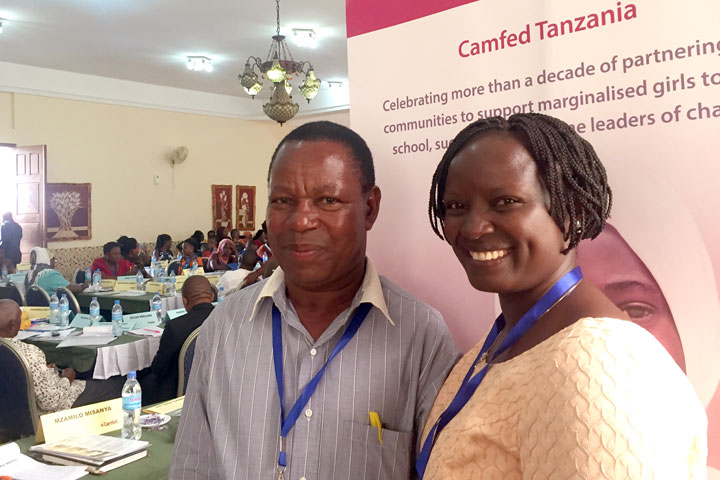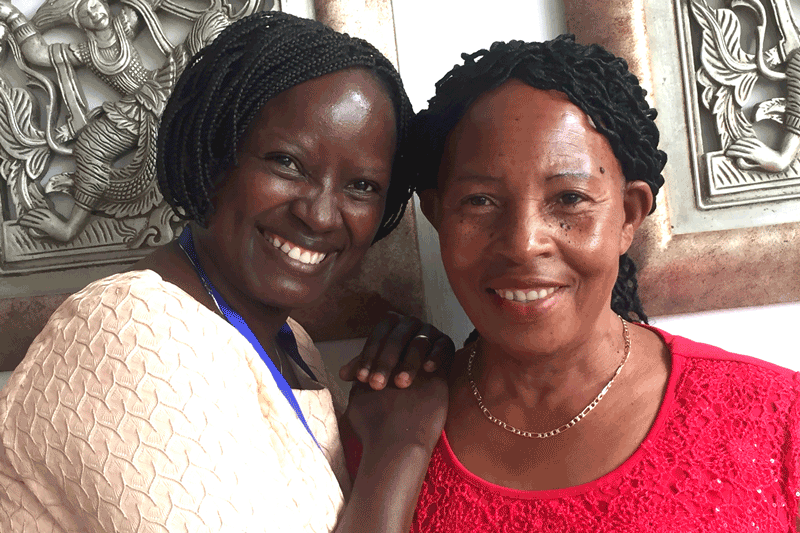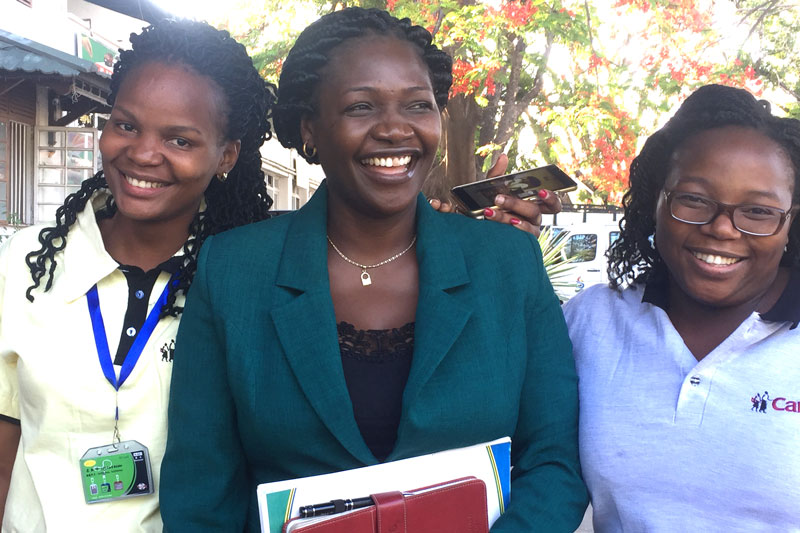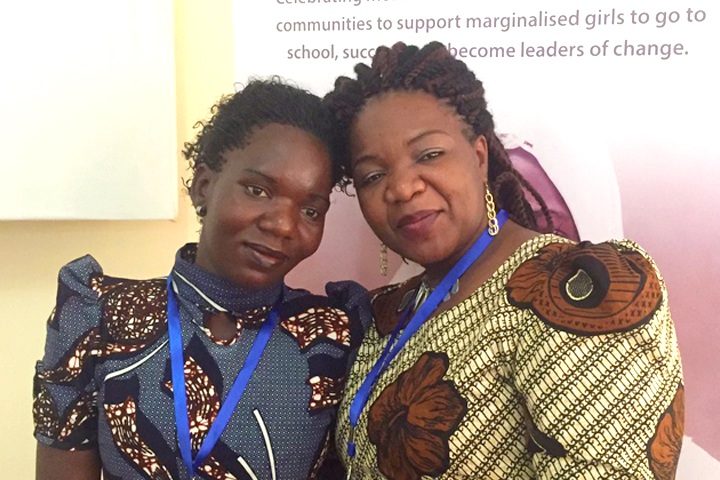
When girls succeed and women lead

It takes a village to raise a child, and it takes a community to educate a girl.
This week, the power of rural community partnerships to shape the future of the most marginalized girls was highlighted by CAMFED Tanzania during its 10th anniversary AGM. Together with students, alumnae, teachers, parents, district and national officials CAMFED celebrated the achievements of its movement for girls’ education and made plans to accelerate its impact through the leadership of the young women in its CAMA alumnae network.
“Education is a possession no enemy can take away”
Swahili proverb
CAMFED Tanzania launched over a decade ago to support the most marginalized children to access school, stay in school and succeed, changing the prospects for themselves and their communities. Today, it partners with 675 rural schools, has supported more than 163,000 children to go to school, and improved the learning environment for more than 511,000 students.
“Our success stands on the partnerships we build with community members, schools and district officials to support, protect and nurture vulnerable children, a majority of whom are girls. Our governance model is accountable to every individual girl, and our partners are the shareholders in girls’ success – shareholders with whom we strategized over the past fortnight,” says Lydia Wilbard, Co-Director of CAMFED Tanzania. Ms. Wilbard co-founded the Tanzanian chapter of CAMA (the CAMFED Association). Now 7,957-strong, CAMA Tanzania is part of a movement of more than 55,000 educated young women from across rural sub-Saharan Africa.

Lydia Wilbard with Mzamilo Misanya, the Head of a new CAMFED partner school. On her recent visit to Korogwe District, Lydia was delighted to discover that she would be partnering with the man who used to be her teacher!
Running innovative programmes that address education quality
Through CAMA, alumnae access the tools, resources and emotional support they need to become independent leaders in their communities and beyond. A decade on, CAMA’s leaders are using their personal experience of poverty and exclusion to mentor the next generation of vulnerable students, and build bridges between families, schools and government institutions.

CAMFED Tanzania Co-Director Lydia Wilbard with Anna Bituro, a nurse and one of CAMFED Tanzania’s first Community Development Committee partners

Hadija Mcheka from the Ministry of Education with CAMA Tanzania’s soon-to-be first lawyer Lilian (left), and CAMA Zimbabwe’s first lawyer Fiona (right)
CAMA members are running businesses and joining professions that lift their families out of poverty. They are actively developing and running innovative programmes that address education quality, child protection, women’s empowerment and sustainable economic development in their local schools and in the wider community.

CAMFED alumna Aida (left) is now a Teacher Mentor, providing psycho-social support for vulnerable children. She is pictured here with our Regional Director for East Africa, Angeline Murimirwa, one of the first girls to graduate with CAMFED’s support in Zimbabwe.
“We now have nearly 1,000 trained CAMA members – like Zuhura in Bagamoyo and Deborah in Iringa – delivering life skills, study skills and literacy curricula in local secondary schools, helping children stay in school and succeed,” Lydia Wilbard explains. “Alumna Aida is now a qualified Teacher Mentor in Ulanga District, providing psycho-social support for marginalized students. Josephine from Kibaha District is an elected ward councillor, advocating for education in local politics. CAMA member Sophia is a midwife in Iringa District, improving health outcomes for rural women and their babies. Eva from Kilosa District is a thriving entrepreneur, who shares her business and sustainable agriculture expertise on the District Community Entrepreneurship Board. And Grace from Handeni District is a police officer, who protects the vulnerable from exploitation and violation.”
Together with their communities, using their own resources, CAMA members in Tanzania supported 26,711 students to go to school in 2015 alone.
“Our impact over the past decade demonstrates the multiplier effect of our investment in girls’ education, as it spreads without boundaries. Girls’ education and women’s empowerment truly is the best investment we can make to break the cycle of poverty for good,” Lydia Wilbard concludes.
